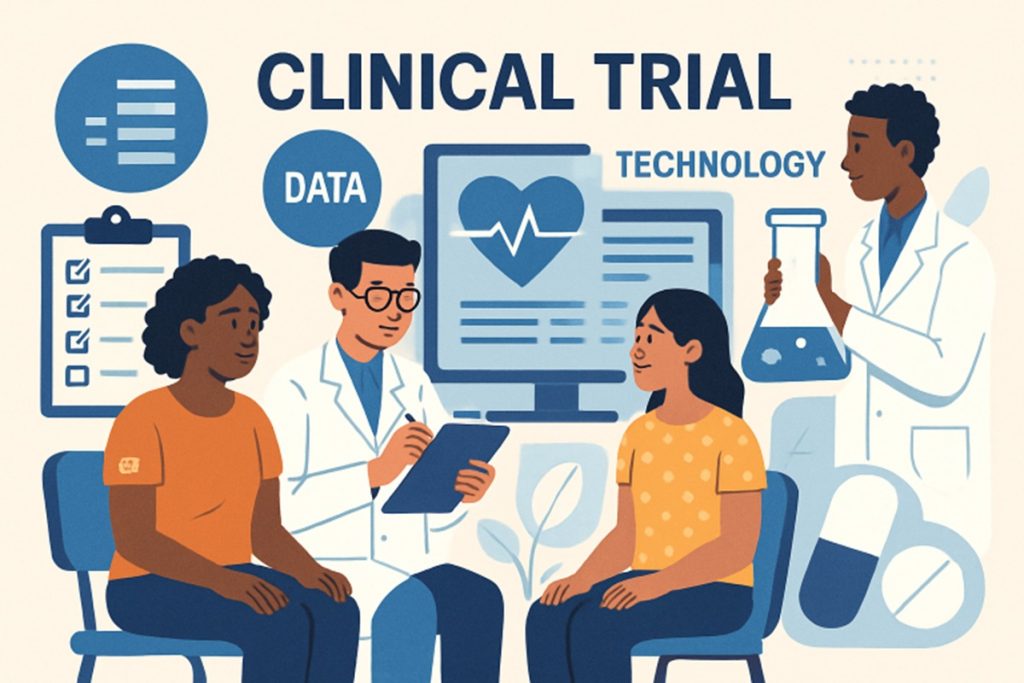Post Preview
Key Takeaways
- Clinical trials are essential for developing and validating new medical treatments.
- Innovative approaches such as adaptive and decentralized trial designs improve efficiency and inclusivity.
- Artificial intelligence is streamlining data analysis and speeding up patient recruitment.
- Participating in clinical trials provides access to new therapies while directly advancing medical knowledge.
Table of Contents
- Importance of Clinical Trials
- Innovations in Clinical Trial Designs
- Role of Artificial Intelligence in Clinical Trials
- Patient Participation in Clinical Trials
- Challenges and Future Directions
Clinical trials form the backbone of healthcare innovation, rigorously testing new medicines and therapies before they reach widespread clinical use. As the world faces new health challenges, the role of clinical trials becomes even more crucial. Their impact stretches beyond research and discovery—they affect patient outcomes, healthcare policy, and the entire medical landscape. For individuals considering enrollment, understanding the pros and cons of taking part in clinical trials can inform their decision and help them contribute meaningfully to healthcare advancement.
As clinical science evolves, so do the methodologies used in trials. New designs and technologies, such as adaptive protocols and artificial intelligence, are changing the speed and effectiveness of trials. These advances allow researchers to bring patients safer, more effective treatments faster than ever. A deeper understanding of these innovations and the integral role of patient participation can empower individuals to become active contributors to medical progress.
Importance of Clinical Trials
Every medical therapy, from common vaccines to breakthrough cancer drugs, results from a rigorous clinical trial process. These studies determine whether new interventions are effective and safe for humans. Even the most promising scientific concepts could not be translated into accessible therapies that benefit communities globally without clinical trials. Comprehensive testing in these trials ensures that new medicines meet the highest efficacy and patient safety standards.
Clinical trials have produced some of the most significant medical achievements in recent decades, including treatments for chronic diseases, rare conditions, and previously untreatable illnesses. According to the National Institutes of Health, participation in clinical research is fundamental for scientific validation and ongoing innovation in treatment and prevention strategies.
Innovations in Clinical Trial Designs
Traditional clinical trials are often lengthy and expensive, sometimes taking years to complete. However, modern innovations in trial methodologies aim to accelerate this process and make it more patient-centric:
- Adaptive Trials: These designs allow researchers to adjust study parameters based on interim data, nurturing a more flexible scientific approach. By making real-time modifications, adaptive trials can reduce delays, increase ethical oversight, and pinpoint effective treatments more rapidly.
- Decentralized Trials: Spurred by advancements in digital health, decentralized trials let participants contribute data remotely, removing barriers related to location or physical ability. Particularly during disruptions such as the COVID-19 pandemic, this model has expanded access and made enrollment more reflective of real-world populations.
Embracing these innovations not only improves efficiency but also supports greater inclusion and diversity within research cohorts, both critical for generalizing results to the broader patient population. This review from Nature provides more on the evolution of trial designs.
Role of Artificial Intelligence in Clinical Trials
The adoption of artificial intelligence is dramatically changing how clinical trials are conducted. AI is revolutionizing several critical components of research, including:
- Data Analysis: AI systems can sift through vast datasets in moments, uncovering trends and insights that may be impossible for human researchers to detect quickly. This leads to faster and more accurate results.
- Patient Recruitment: Identifying eligible trial volunteers has historically been one of the biggest hurdles in clinical research. AI automates and optimizes this process by combining electronic health records, social media, and other platforms to find potential matches.
- Trial Design Optimization: AI-powered simulations help determine the most effective study parameters, eliminating unnecessary resources and time.
These advancements open the door to more personalized medicine and potentially life-changing treatments to those needing them most rapidly. Leading sources regularly report on AI’s impact on speeding up and streamlining the medical research pipeline.
Patient Participation in Clinical Trials
No clinical trial can move forward without patient volunteers. Participation not only gives patients early access to promising new therapies but is also a direct way to contribute to improving healthcare options for future generations. By partnering with researchers, patients help answer critical questions that impact community well-being and medical standards worldwide.
Despite their crucial importance, many trials struggle to recruit and retain enough volunteers. Educating the public about what trials entail and removing barriers to participation—such as travel, time, and cost—are important next steps. New platforms and healthcare applications are making trial information accessible so more patients can make informed decisions about their involvement.
Challenges and Future Directions
While there has been significant progress in how clinical trials are designed and executed, several obstacles remain:
- Recruitment and Retention: Many trials experience slow progress due to difficulties enrolling and keeping volunteers throughout the study.
- Regulatory Hurdles: Navigating national and international regulatory requirements can be complex, often resulting in delays.
- Data Management: The sheer volume of data generated in modern trials demands sophisticated digital infrastructure and analytics, which are still being optimized.
Increased use of decentralized models, integrating AI, and proactive patient engagement will likely help address these barriers, creating a more efficient and inclusive clinical research environment. Continued collaboration between industry, regulatory bodies, patients, and advocacy groups will be critical in shaping the next era of medical discovery.
In summary, clinical trials are the vital foundation upon which the future of medicine is built. By combining scientific rigor, technical innovation, and active patient participation, today’s research paves the way for tomorrow’s treatments, ensuring hope and healing for future generations.







